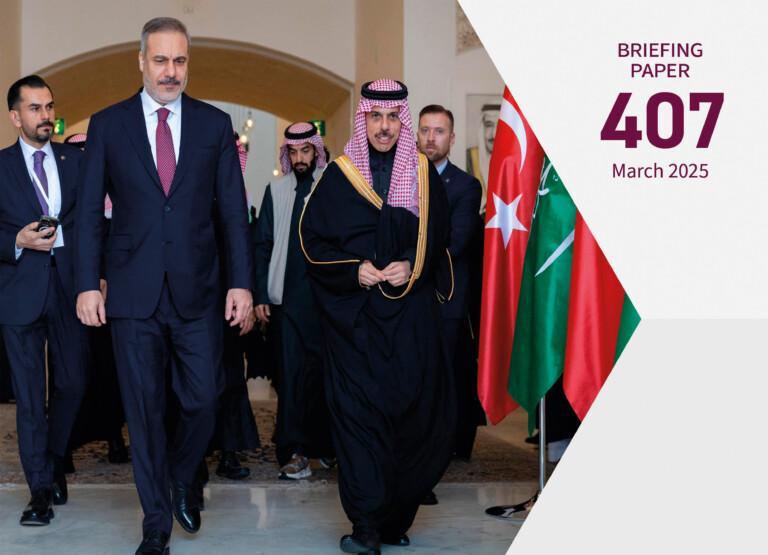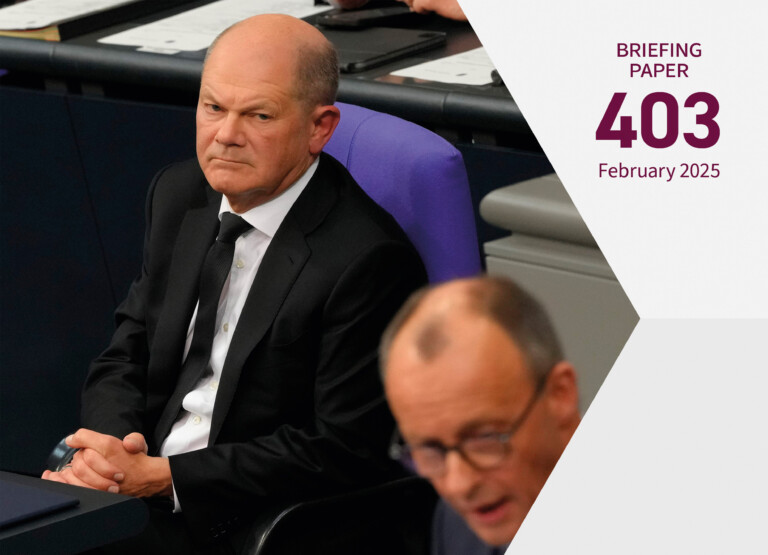The victory of the moderate Islamist Ennahda party in Tunisia’s first democratic elections could herald a new beginning for Arab politics. But it could also represent a return of the old divisions between Islamists and secularists. To avoid reinforcing divisions, Europe needs to tread softly and steer clear of repeating previous mistakes.
Tunisia’s elections for a National Constituent Assembly have been a resounding success. Following months of uncertainty and instability, Tunisians turned out in record numbers to vote for a brighter democratic future. With an unprecedented voter turn-out of around 70%, the elections easily dispelled fears that Tunisians might have fallen out of love with their own revolution, after what has been a tumultuous ten-month transition period.
Given a largely smooth electoral process that was ranked as “free and fair” by the OSCE, the elections have set a hopeful precedent for the rest of the region. However, Western pundits and markets alike have reacted nervously to the news that the moderate Islamist Ennahda party had won more than 40% of the popular vote at the polls. What will be the impact of Ennahda’s dominance on Tunisia’s post-revolutionary politics? And what are the lessons that can be drawn from the elections for the rest of the region?
Having been outlawed and prosecuted under the reign of Zine El Abidine Ben Ali, the Ennahda (Renaissance) party has been absent from Tunisian politics since 1989, until its leader, Rashid al-Ghannushi, returned from exile following the revolution. Since then, Ennahda has experienced a meteoric rise in what has been the most avowedly secular country in the Arab world.
Despite its long absence from formal politics, Ennahda has been able to quickly rebuild its network of grassroots activists and supporters. With a strong support base amongst the poor and rural areas, Ennahda has also worked tirelessly to reassure Tunisia’s secular elite that it does not pose a threat to their way of life. Al-Ghannushi has repeatedly compared his party to the Turkish AKP of Recep Tayyip Erdoğan and Ennahda’s electoral programme pledges to build a modern, democratic state. Party leaders have also stressed their support for women’s rights and equality, and reject polygamy.
Nevertheless, Ennahda’s rise has led to a growing polarization of Tunisian politics in the months since the revolution. The postponement of the elections from July to October, the introduction of restrictions on party financing, and a last-ditch effort by secular parties to limit the powers of the National Constituent Assembly were all seen by Ennahda as signs of unjust discrimination. This was not helped by the fact that some of the secular parties have run a negative electoral campaign that has sought to portray Ennahda as dangerous extremists. For their part, secular parties have accused Ennahda of double-speak, by pointing towards its previous support for the Iranian Revolution, as well as recent statements by al-Ghannushi that seem to endorse the re-establishment of an Islamic caliphate. They are also worried that Ennahda’s rank-and-file might not share the leadership’s moderation, pointing to a string of Salafist demonstrations turning violent.
This polarization between religious and secular forces is likely to present a real test for Tunisia’s new National Constituent Assembly (NCA). By reopening the debate on such issues as Tunisia’s Islamic identity and the role of religion, the NCA might reinforce smoldering social and religious divisions. The recent protests and attacks on an Ennahda headquarter in Sidi Bouzid – whether perpetrated by remnants of the old regime or not – have set a dangerous precedent. Should tensions continue to deepen, there is a risk that some of Tunisia’s francophone elites might turn their back on the democratic process.
Given the NCA’s vague mandate, more problems are bound to emerge over the role and power of the assembly, the nature of the new government and its mandate to enact potentially divisive policies. Of course, none of this needs to derail the transition process. Indeed, there is a good chance that their participation in the NCA will force Islamist and secularists to experiment with coalition politics and to debate their differences in the open. Over time, this process might allow both sides to overcome their existing animosities and forge a more inclusive political narrative that can serve as a model to the region.
When it comes to the wider regional implications, two lessons seem to stand out.
First, while the Arab revolutions have succeeded in toppling the old order, they have not yet given rise to a new politics. Just as in the past, the main dividing line across the region remains between Islamist and secularists. And just as before, secular parties tend to be fragmented and formed around strong personalities, while Islamists represent the only organized forces with a broader societal appeal. Although Tunisia’s elections might have been a first step towards overcoming this dichotomy, the path towards a new political discourse is likely to remain treacherous and will require patient compromises.
Second, Tunisia’s elections seem to have confirmed that despite their secondary role during the revolutions, Islamist parties are emerging as the strongest force in post-revolutionary politics. Indeed, there are growing signs that in Libya, Egypt and Syria, Islamists of various orientations are likely to take the lead.
For Europe, this development represents a real test. As old divisions resurface, Europe needs to avoid taking sides and act as a bridge-builder between the different parties. Anything else would not only damage its credentials, but would also stall current attempts at creating a more inclusive political discourse. Ultimately, this would reinforce the Islamist-secularist divide, which now presents the greatest challenge to the current transition.











